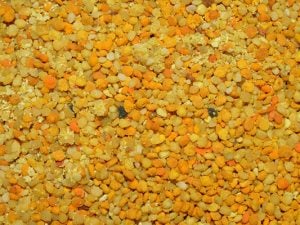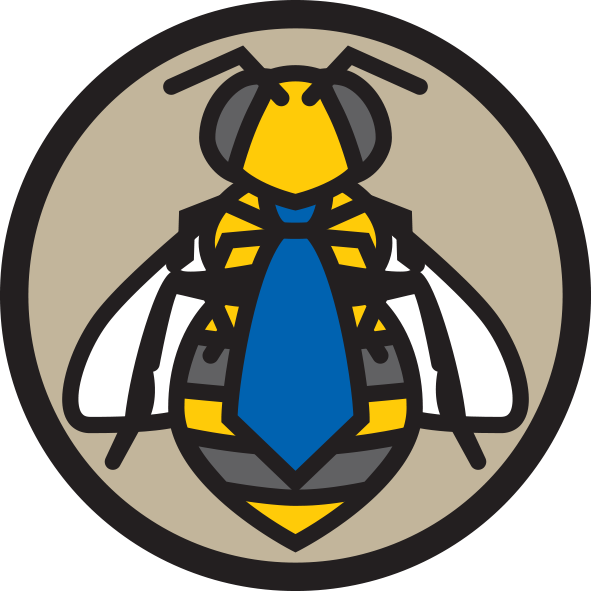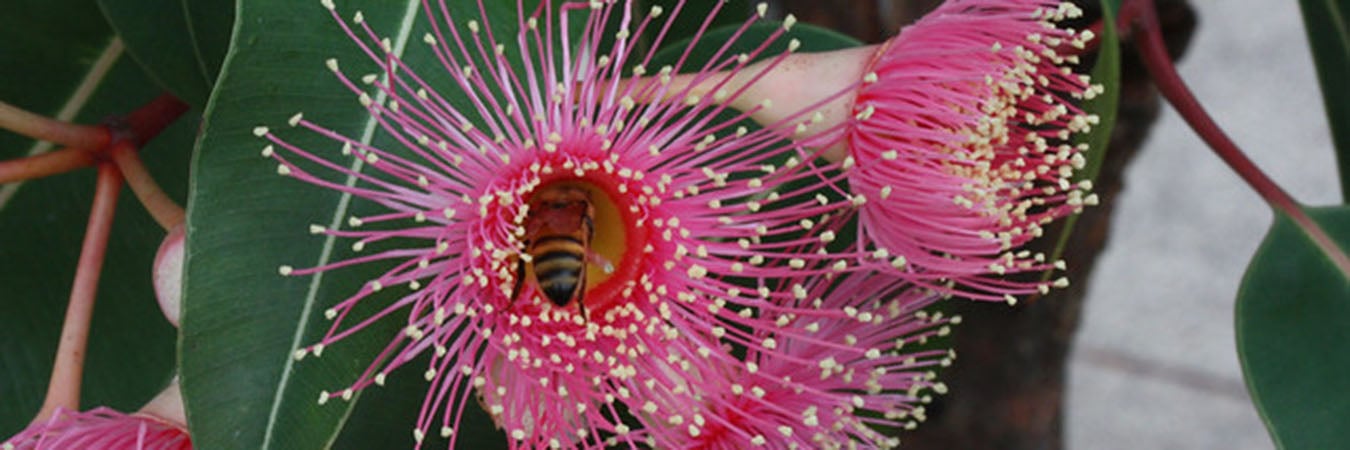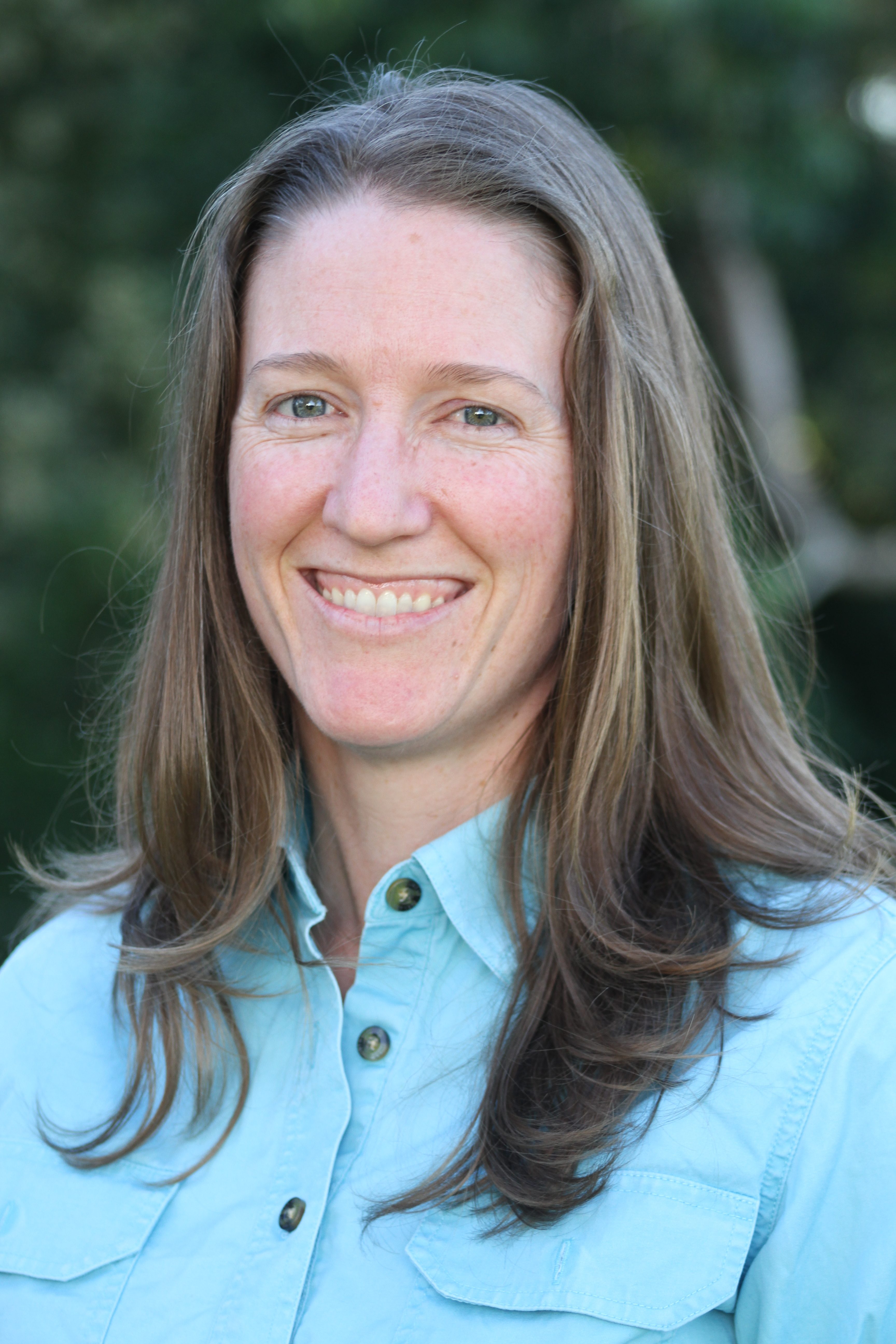Honey bees eat nectar (carbohydrates) and pollen (protein). Simple. But we can make it more complex: amino acids, fats, minerals and vitamins.
Carbohydrates
Colonies will perish within days if they do not have carbohydrates to consume. The biggest contributing factor to honey bee colony losses in winter is a lack of carbohydrates – either honey or sugar supplements. Lack of nectar will increase aggression and decrease brood rearing, pollen foraging and hygienic behaviour.
Protein
The amount of protein required depends on the season, the climate and the plant species available in the area. The amount of protein in pollen is important. Pollens can be graded on the crude protein proportion they contain. A poor-quality pollen has a crude protein proportion lower than 20%. A high-quality pollen is around 30% crude protein. No matter what the quality of the pollen is, if not enough is available then the colony will suffer a protein deficiency. A protein deficiency will result in less brood being reared and workers having shorter lives.

Pollen is a source of amino acids, fat, minerals and vitamins, essential for honey bee nutrition.
Source: rachaelbonoan on Flickr
Amino acids
Protein is composed of amino acids. 10 amino acids have been determined to be essential for honey bee health. The main limiting amino acid in Australian pollens is isoleucine. Isoleucine is particularly low in eucalyptus pollen.
Fat
Fat is composed of fatty acids, sterols and phospholipids. A number of fatty acids have been found to have antimicrobial properties. Cholesterol is needed to support brood rearing. When some fats are present in too high a concentration they can reduce brood rearing and the balance of fats can affect honey bee learning and memory. Eucalypt pollen contains only 1-2% fat. The total fat concentration in a pollen supplement should be between 5-8%. As with humans, it’s all about a balanced diet.
Minerals
Up to 27 trace elements (minerals) have been found in pollen. Concentrations that are too high or too low can impact on brood rearing capability. High potassium or phosphate and low sodium concentrations have been associated with paralysis of adult bees. High concentrations of some minerals may cause dysentery, while others are toxic. The most important minerals are likely to be potassium, phosphate and magnesium, although this has been poorly researched in honey bees.
Vitamins
Vitamins have not been linked with longevity of adult honey bees, but they are necessary for brood development. The B vitamins, vitamin A and vitamin K have been linked to the development of the hypopharyngeal glands and brood rearing and gibberellic acid and inositol with brood development. Pollen is an excellent source of B vitamins. Vitamins deteriorate in stored pollen, reducing the nutritional value of pollen that has been stored for more than 12 months.
Video:
The biology of honey bee nutrition and what it means to the beekeeper, David Tarpy, National Honey Show. This talk features Fat Bees Skinny Bees by Doug Somerville.
Acknowledgements:
- Somerville (2005) Fat Bees Skinny Bees – a manual on honey bee nutrition for beekeepers. Rural Industries Research and Development Corporation publication 05/054
- This article was written by Nadine Chapman and reviewed by Doug Somerville and Elizabeth Frost.


